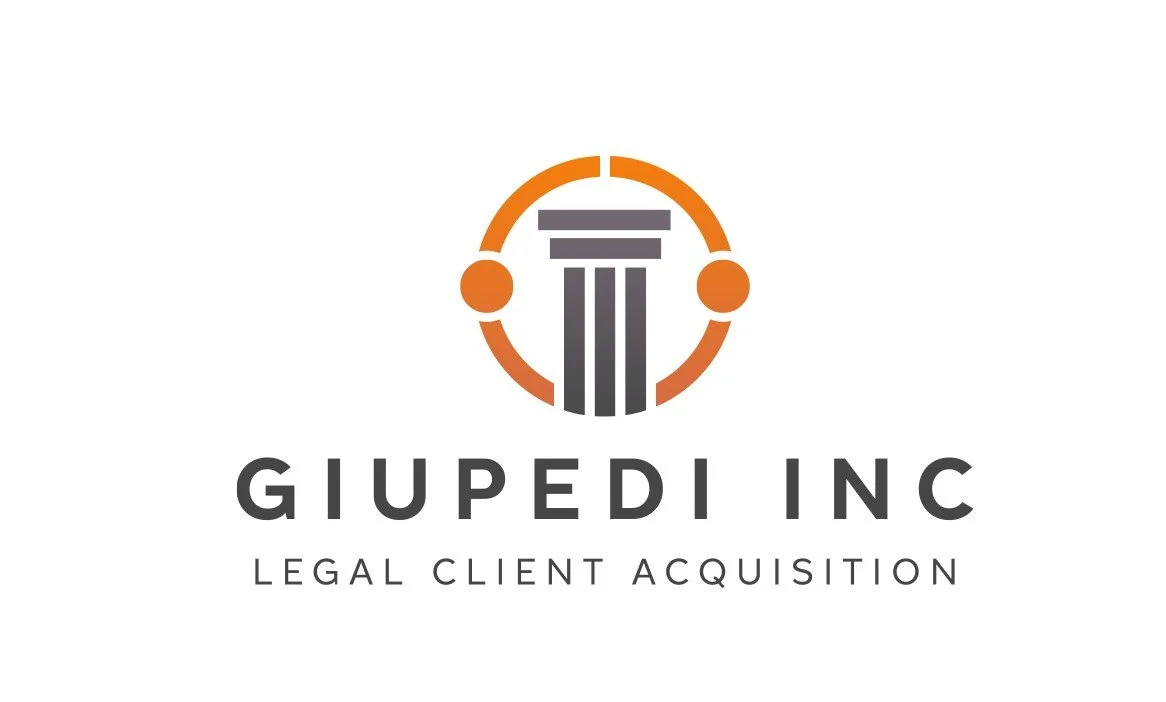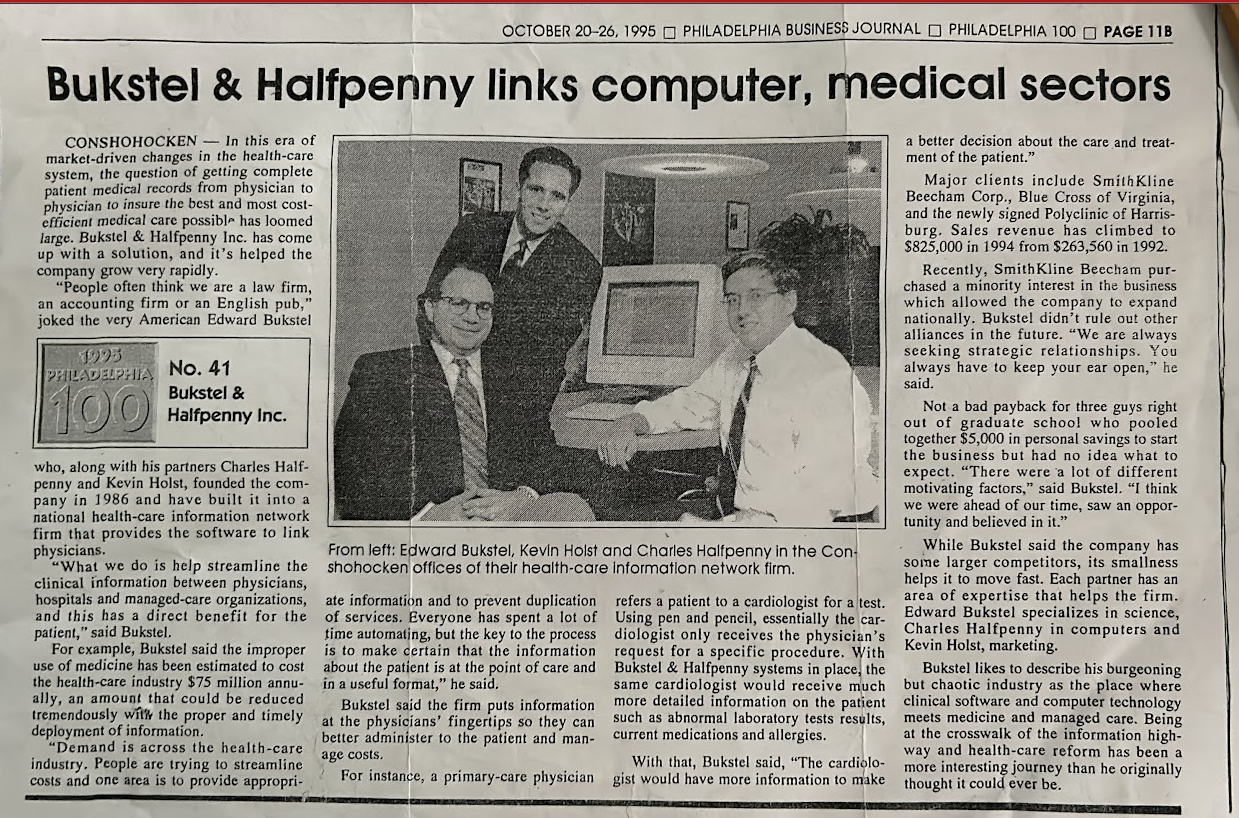From EMRs to AI Legal Tech: Edward Bukstel’s Visionary Path from Health Data Pioneer to Giupedi CEO
In the rapidly evolving landscape where healthcare and technology converge, few have had the foresight—and follow-through—of Edward Bukstel. From co-founding one of the first Electronic Medical Record (EMR) firms in the 1980s to launching a groundbreaking AI-powered legal tech platform, Bukstel’s career is a masterclass in spotting the intersection of unmet need and emerging technology.
Today, Bukstel is the CEO of Giupedi, Inc., a generative AI-powered legal client acquisition platform aimed at transforming how hospitals and law firms connect with injured patients. But his journey started in an era when healthcare IT was still in its infancy.
Early Years: Building the Digital Bedrock of Healthcare
In 1986, Edward Bukstel co-founded Bukstel & Halfpenny, an early healthcare IT firm based in Conshohocken, Pennsylvania. At a time when most clinical data still lived in manila folders and filing cabinets, Bukstel and his partners—Charles Halfpenny and Kevin Holst—pioneered systems that allowed physicians to share patient data electronically.
“What we do is help streamline the clinical information between physicians, hospitals, and managed-care organizations,” Bukstel told the Philadelphia Business Journal in 1995. The company’s growth reflected the industry’s urgent need for efficiency: revenues jumped from $263,560 in 1992 to $825,000 in 1994, driven in part by partnerships with clients like SmithKline Beecham and Blue Cross of Virginia.
Bukstel's work during this era wasn’t just innovative—it was foundational. He became one of the seven founding members of ASTM1238, the group that would go on to create the clinical interoperability standards now embedded in over 35,000 hospitals globally. This work was eventually merged with HL7, the preeminent standard in healthcare data exchange.
Bridging Health and Law: A New Vision with Giupedi
Fast-forward to 2025, and Bukstel is once again leading at the edge of innovation—this time, in the legal technology space.
As CEO of Giupedi, he is solving a dual-sided pain point: hospitals losing billions due to unpaid medical bills, and personal injury lawyers struggling with expensive, inefficient lead generation. Giupedi's AI-driven platform enables discharged patients to securely upload medical and case documents once, which can be shared—anonymously, if preferred—with multiple law firms. Hospitals benefit by earning revenue through subrogation and legal liens, while lawyers gain access to high-quality, HIPAA-compliant leads.
This multi-sided marketplace is modeled after consumer platforms like Priceline and LendingTree, combining sophisticated workflow integration with intuitive patient and lawyer UX. But what truly differentiates Giupedi is Bukstel’s commitment to ethical, compliant design—born of decades navigating privacy regulations in healthcare.
The AI Edge: Generative Tech Meets Legal Intake
Under Bukstel’s leadership, Giupedi integrates generative AI to analyze medical records, match patients with lawyers, and reduce redundancy in legal intake. This not only increases efficiency but dramatically improves outcomes for all stakeholders—patients, providers, and attorneys.
Bukstel's expertise in software development, marketing, and regulatory navigation shines in Giupedi’s go-to-market approach. With prior experience at firms like WebMD and Medical Manager Corporation, he understands how to build scalable platforms with strong ROI metrics. His track record includes launching blockchain-based compliance systems and speaking globally at forums sponsored by Pfizer, GlaxoSmithKline, IEEE, and Jefferson Health.
Thought Leadership and Industry Impact
Bukstel has been featured in Law.com, quoted in national legal publications, and appeared on the Legally Disrupted podcast. His thought leadership continues to influence how both the healthcare and legal sectors view AI integration.
“Technology alone isn’t the answer,” he often notes. “The solution lies in connecting people—patients, doctors, and lawyers—through systems that protect privacy and deliver value.”
Conclusion: The Architect of Convergence
Edward Bukstel’s career is a blueprint for tech entrepreneurs seeking to bridge entrenched industries. His trajectory—from architecting early EMRs to launching a legal AI platform that’s already reshaping how America handles personal injury law—demonstrates what’s possible when visionary leadership meets practical execution.
At Giupedi, Bukstel is not just creating software; he’s reimagining the infrastructure that links medical and legal ecosystems. His work shows us that even in the most regulated industries, innovation thrives when guided by experience, ethics, and empathy.
Crazy Litigation: I contacted the FBI and helped put a couple of lawyers in prison.
In 2008, entrepreneur Edward Bukstel launched VitaminSpice, a novel food concept combining spices and nutritional supplements. But as the financial crisis upended global markets, Bukstel turned to the securities world to help raise capital. This decision would entangle him in a decade-and-a-half of legal warfare centered around a lawyer named Jehu Hand. Hired in 2009 as securities counsel, Hand would soon be revealed as the architect of a vast and malicious fraud scheme. Bukstel began noticing irregularities, including suspicious trading patterns and forged stock transfer documents. When he fired Hand in 2010, a barrage of retaliatory lawsuits followed from shell entities tied to Hand and his international network, including figures with links to Ukraine, Russia, and even USAID.
What followed was a years-long odyssey through courts in multiple states and federal jurisdictions, with Bukstel tirelessly working to expose what he believed was a coordinated stock fraud conspiracy. The crux of the scheme involved the creation of fictitious entities like Esthetics World and Advanced Multilevel Concepts, populated by forged identities and controlled by Hand behind the scenes. Despite early skepticism from courts, Bukstel ultimately succeeded in exposing forged signatures, fake shareholders, and fabricated legal filings. His claims were validated in 2019 when Jehu Hand was sentenced to 66 months in prison for securities fraud, wire fraud, and forgery, alongside his brothers and long-time assistant Kimberly Peterson, who testified under oath about the fraudulent acts she committed at Hand’s direction.
Even after his conviction, Hand continued to file lawsuits, including a revived 2013 California judgment domesticated in Pennsylvania. Bukstel countered with a Motion to Strike, pointing out Hand’s continued impersonation of an attorney, violations of court rules, and lies exposed through Hand’s own habeas petition filed in 2022. These filings revealed Hand’s financial control over alleged independent creditors and detailed further forgeries—including fake passports and identities like "William Wilkinson." Bukstel’s relentless pursuit of truth not only helped convict a corrupt attorney but also highlighted systemic vulnerabilities in the U.S. legal and securities systems. His story stands as a cautionary tale and a testament to the power of persistence in the face of institutional failure


